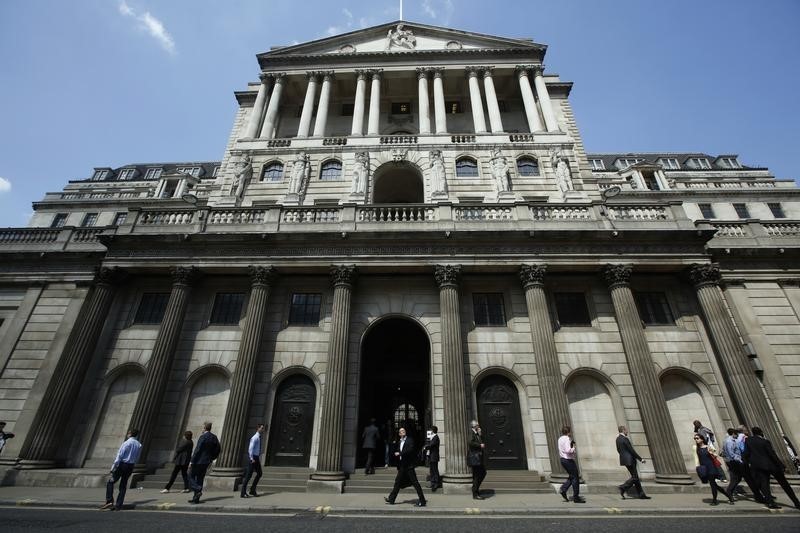Street Calls of the Week
Investing.com – The Bank of England (BoE) decided on Thursday to lower interest rates for the first time in seven years to a new record low in the wake of the U.K.’s decision to leave the European Union (EU), known as a Brexit, as well as increasing its quantitative easing program.
Specifically, the BoE lowered the benchmark interest rate to 0.25%, in a widely expected move. The rate had previously been at 0.50% since March 2009.
The decision to cut interest rates was undertaken in a unanimous vote.
Furthermore, and in an unexpected move, the Monetary Policy Committee (MPC) voted 6 to 3 to increase its asset purchase program for the acquisition of government bonds by £60 billion to £435 billion. Analysts had expected no change to the £375 billion program.
Additionally, the MPC voted 8 to 1 to purchase up to £10 billion in corporate bonds.
The MPC further decided to implement a new scheme to provide as much as £100bn of new funding to banks to help them pass on the base rate cut to the real economy.
Under this new “term funding scheme” (TFS) the Bank will create new money to provide loans to banks at interest rates close to the base rate of 0.25%
According to the minutes, the U.K.’s decision to leave the EU caused the outlook for growth in the short to medium term to weaken markedly.
In this light, the BoE’s inflation report showed that the central bank cut its forecast for growth next year to 0.8%, from the prior 2.3%. It also reduced its estimate for 2018 to 1.8%, from the prior 2.3%.
For the year in course, the BoE left the forecast unchanged at 2.0%, with expectations for an expansion of just 0.1% in the current quarter.
“Recent surveys of business activity, confidence and optimism suggest that the U.K. is likely to see little growth in GDP in the second half of this year,” the BOE said.
With regard to price stability, the BoE noted the weakness in the pound and the corresponding effect on inflation.
The central bank now expects inflation to hit its 2% target in the fourth quarter of 2017, compared to its prior prediction that it would not reach the goal until the second quarter of 2018.
Immediately following the release, the pound dropped sharply lower. GBP/USD was trading at 1.3175 from around 1.3326 ahead of the announcement, while EUR/GBP was at 0.8446 from 0.8355 earlier.
Meanwhile, European stock markets were higher. London’s FTSE 100 surged 1.20%, while the Euro Stoxx 50 gained 0.99%, France's CAC 40 rose 0.66%, while Germany's DAX traded up 0.87%.
